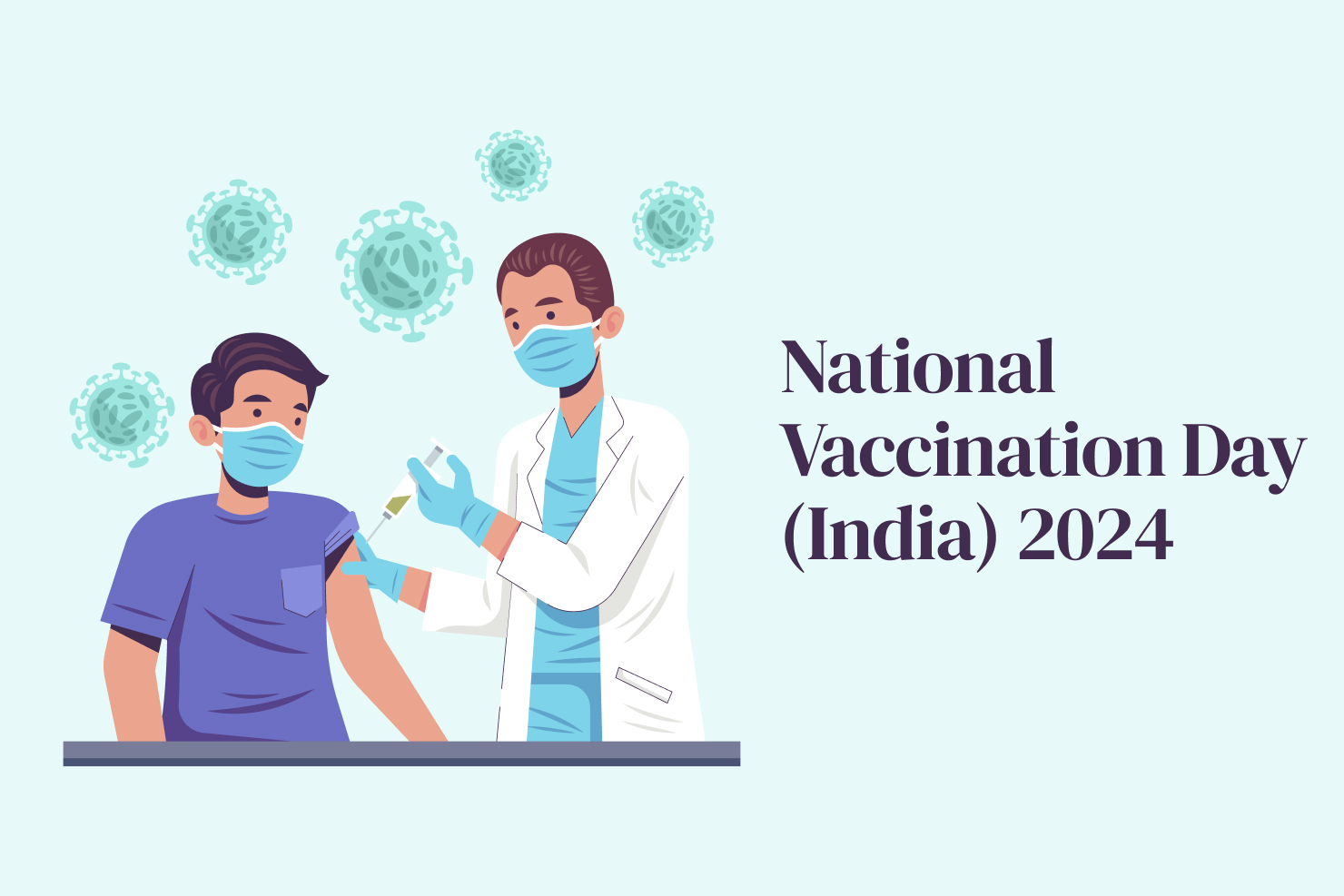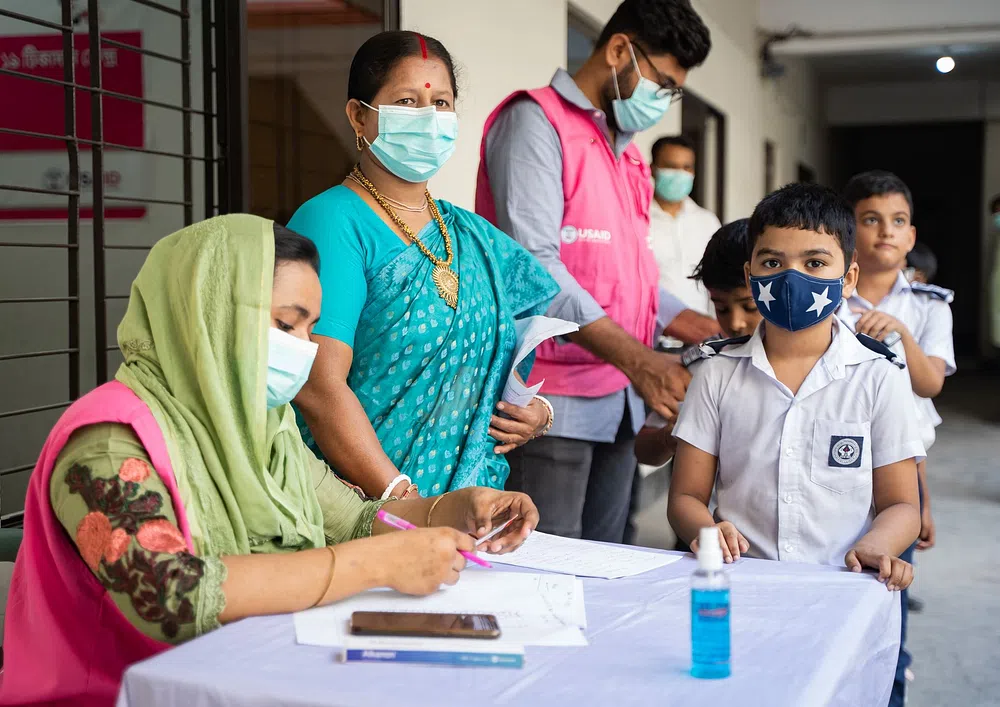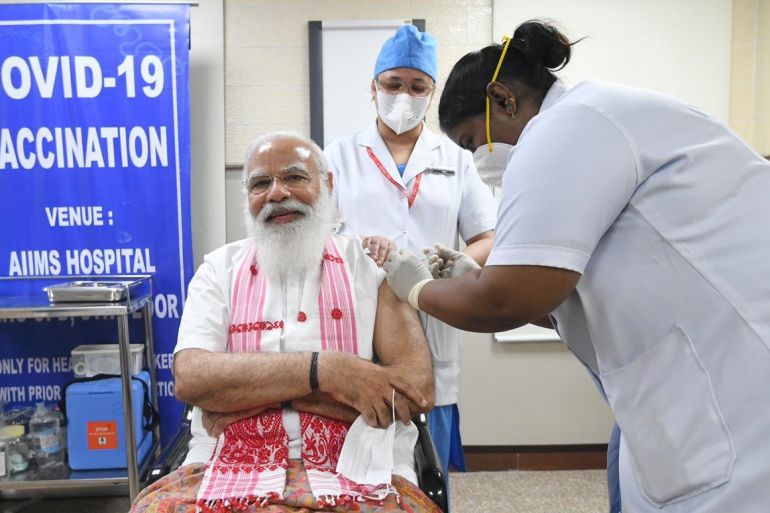What is National Vaccination Day?
National Vaccination Day, also known as National Immunization Day (NID), is observed in India on March 16th each year. It commemorates the first administration of the oral polio vaccine (OPV) by Dr. Jonas Salk, the developer of the polio vaccine, on March 16, 1955. This day serves as a reminder of the importance of vaccination in preventing infectious diseases and protecting public health.
Why is National Vaccination Day Important?
National Vaccination Day holds immense significance for public health in India and globally for several reasons:
- Eradication of Polio: India has made remarkable progress in the eradication of polio through National Vaccination Day campaigns. Mass vaccination efforts have contributed to the significant reduction in polio cases, bringing the country closer to achieving polio-free status.
- Prevention of Vaccine-Preventable Diseases: National Vaccination Day promotes immunization against a range of vaccine-preventable diseases, including polio, measles, rubella, tetanus, diphtheria, hepatitis, and others. Vaccination protects individuals and communities from illness, disability, and death caused by these infectious diseases.
- Protection of Children’s Health: Immunization plays a crucial role in safeguarding the health and well-being of children, who are particularly vulnerable to vaccine-preventable diseases. By ensuring that children receive timely vaccinations, National Vaccination Day helps reduce childhood morbidity and mortality rates.
- Achievement of Universal Immunization Coverage: National Vaccination Day aims to strengthen immunization programs and achieve universal immunization coverage across India. By reaching all segments of the population, including marginalized and underserved communities, these campaigns strive to eliminate disparities in vaccine access and uptake.

How is National Vaccination Day Implemented in India?
National Vaccination Day campaigns in India involve a comprehensive and coordinated approach to immunization, with key components including:
- Polio Immunization Drives: National Vaccination Day primarily focuses on administering the oral polio vaccine (OPV) to children under five years of age. Mass vaccination drives are conducted in urban and rural areas, targeting high-risk populations and migrant communities.
- Social Mobilization and Awareness: Extensive social mobilization efforts are undertaken to raise awareness about National Vaccination Day and the importance of immunization. Public awareness campaigns utilize various communication channels, including television, radio, print media, and digital platforms, to reach diverse audiences.
- Vaccine Distribution and Logistics: Adequate supplies of vaccines, syringes, and other immunization supplies are procured and distributed to vaccination sites across the country. Mobile vaccination teams are deployed to remote and hard-to-reach areas to ensure equitable access to vaccines.
- Monitoring and Surveillance: Health authorities monitor vaccination coverage rates, track adverse events following immunization (AEFI), and conduct surveillance for vaccine-preventable diseases. Real-time monitoring systems help identify areas with low immunization coverage and implement corrective measures promptly.
How can we raise awareness for National Vaccination Day?
Raising awareness about vaccination in India, especially about National Vaccination Day, is crucial for promoting public health and encouraging widespread immunization. Here are several effective ways to raise awareness:
Educational Campaigns:
Organize educational campaigns in schools, communities, and workplaces to provide information about the importance of vaccination, the types of vaccines available, and their benefits in preventing diseases.
Social Media Campaigns:
Utilize social media platforms to share informative posts, graphics, and videos about vaccination. Use hashtags such as #VaccinationAwareness, #NationalVaccinationDay, and #ImmunizeIndia to reach a wider audience and encourage engagement.
Public Service Announcements (PSAs):
Work with local media outlets, including radio, television, and newspapers, to broadcast public service announcements highlighting the significance of vaccination and the importance of National Vaccination Day.
Community Events:
Host community events, health fairs, or vaccination drives where individuals can receive information about vaccines, consult with healthcare professionals, and access immunization services.
Partnerships with Healthcare Providers:
Collaborate with healthcare providers, clinics, and hospitals to offer vaccination clinics, free health screenings, and educational workshops on National Vaccination Day.̃
Engage with Religious and Community Leaders:
Partner with religious leaders, community influencers, and local organizations to spread awareness about vaccination within their respective communities and address any concerns or misconceptions.
Distribution of Educational Materials:
Distribute brochures, flyers, posters, and other educational materials about vaccination in public spaces, healthcare facilities, schools, and community centers.
Involvement of Youth Groups:
Engage youth groups, student organizations, and volunteers in advocacy efforts to raise awareness about vaccination and encourage their peers and family members to get vaccinated.
Digital Outreach:
Leverage digital platforms such as websites, blogs, and online forums to share credible information about vaccination, address frequently asked questions, and provide resources for accessing immunization services.
Government Support and Endorsement:
Seek support and endorsement from government health authorities, policymakers, and public health agencies to amplify awareness efforts and promote National Vaccination Day across the country.
By implementing these strategies and mobilizing diverse stakeholders, we can effectively raise awareness about vaccination in India and encourage individuals to prioritize their health by getting vaccinated on National Vaccination Day and beyond.
Learn More About: World Glaucoma Day (March 12)







